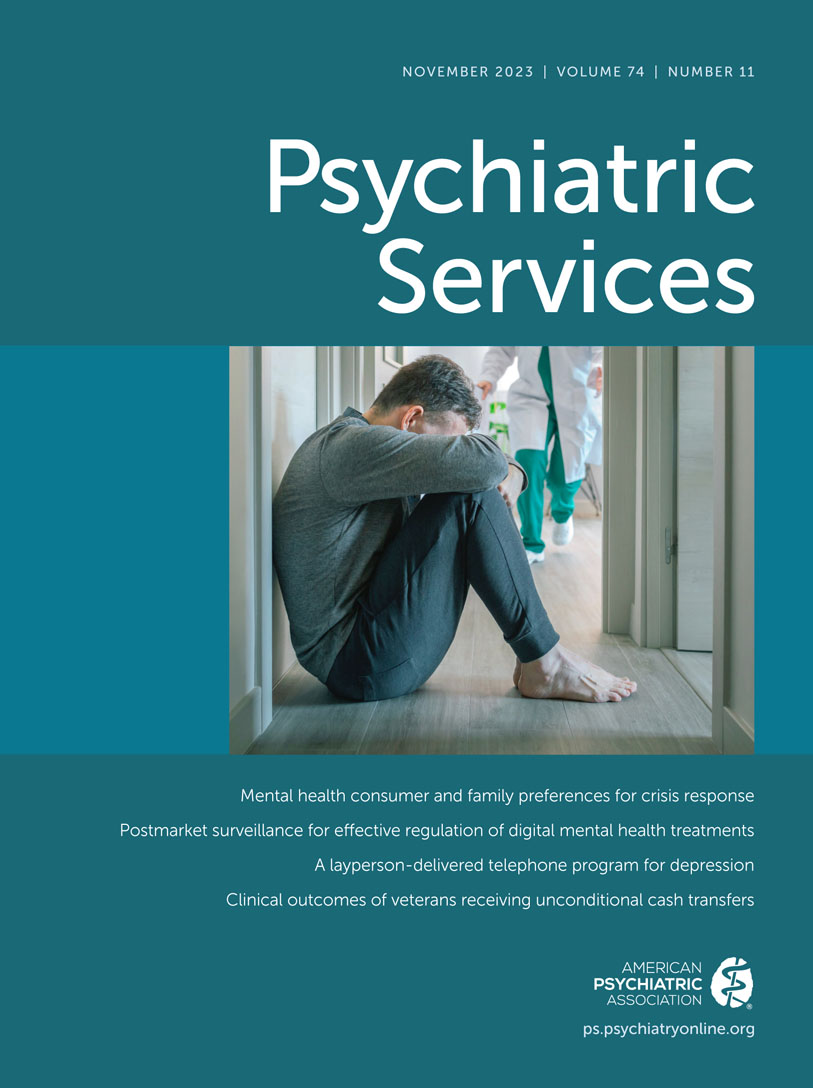Crisis Response Model Preferences of Mental Health Care Clients With Prior Misdemeanor Arrests and of Their Family and Friends
Abstract
The overrepresentation of people with serious mental illnesses in the criminal legal system has spurred the development of crisis response models to improve or reduce police response to a mental health crisis. However, limited research has explored preferences for crisis response, and no research in the United States has examined the responses desired by mental health care clients or their family members. This study aimed to understand the experiences of people with serious mental illnesses interacting with police and to learn about their preferences for crisis response models. The authors interviewed 50 clients with serious mental illnesses and a history of arrest who were enrolled in a randomized controlled trial of a police–mental health linkage system, as well as 18 of their family members and friends. Data were coded with deductive and inductive approaches and were grouped into larger themes. Clients and family or friends described needing a calm environment and empathy during a crisis. They selected a nonpolice response as their first choice and response from a crisis intervention team as their last choice among four options, highlighting the importance of trained responders and past negative interactions with police. However, they also noted concerns about safety and the shortcomings of a nonpolice response. These findings build understanding about clients’ and family members’ preferences for crisis response and highlight concerns that are relevant for policy makers.



